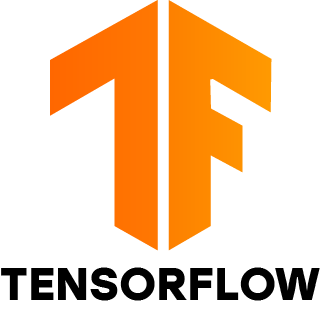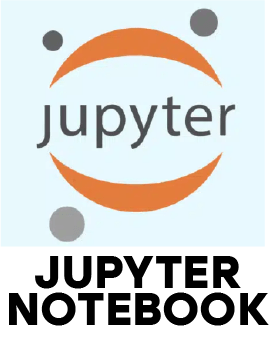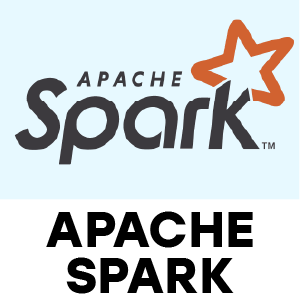This Data Science Course in India is developed in such a manner that it meets the demands and expectations of persons of all educational backgrounds. The training is designed for both technical and technical background professionals. You will become an expert in Big Data Technologies, the world's most popular and fastest-growing field of expertise. Find jobs as Data Scientists, Data Analysts, Data Engineers, Data Developers, and more.
Additional Info
Why To Learn Data Science?
Data Science, with the amount of data being generated and the evolution of Analytics, has become increasingly important for most companies. From Finance, IT, Marketing, Retail, to Retail, and Retail, companies of all types use their data to their advantage. A Data Scientist is needed for all. Data Scientists are in great demand across the globe due to this phenomenon. In conclusion, a job as a software engineer in IBM is one of the best paying jobs for many people due to the kind of salary that the company offers. Data Scientists can come from any background and pursue a career in this field.
Components Of Data Science:
Data Science is comprised of 3 parts, namely:
Machine Learning:-
Algorithms and mathematic models are used to teach machines how to adapt and learn from the world around them, which is the reason machine learning is called machine learning. Nowadays, time series forecasting is used in a great deal of trading, financial, and investment systems. In this approach, the machine uses historical data patterns to predict the outcome for the next few months or years. Machine learning has been applied here.
Big Data:-
Human beings produce a vast amount of data every single day, including clicks, orders, videos, images, comments, articles, RSS Feeds, and more. It is commonly called Big Data, as these data are generally unstructured. Data from big data is converted from an unstructured state to a structured state using tools and techniques. Someone would like to keep track of the prices of products on e-commerce sites, for example. Through RSS feeds and Web APIs, he/she can access the same product data on multiple websites. Create a structured form of them.
Business Intelligence:-
There is a lot of data produced each day by every company. By analyzing this data carefully and then presenting it in visual graph reports, good decisions can be made. After thoroughly examining the details and patterns the reports illustrate, the management can take the most effective decision.
Skills required to become a data scientist include:
Tools
An in-depth understanding of R:-
This language is used for multiple purposes: data analysis, programming, statistical analysis, and data visualization
Python programming:-
Since Python has rich libraries/packages for building and deploying models, it is most commonly used to implement mathematical models.
Microsoft Excel:-
Data entry jobs generally require knowledge of Microsoft Excel. Formulas and equations, as well as diagrams, can be generated from very messy data in data analysis.
Hadoop Platform:-
A distributed processing framework that is open source. A big data application uses it to manage processing and storage.
Coding/SQL database:-
The main purpose of this tool is to prepare and extract datasets. You can also use it to analyze graphs and networks, search behavior, fraud detection, etc.
Technology:-
Unstructured data readily available nowadays has to be accessed since there is so much of it. The process can be accomplished via APIs or through web servers.
Here Are The Top 5 Reasons To Become A Data Scientist.
1. Increasing demand:-
By its high demand throughout the world, the job of Data Scientist has become a worldwide phenomenon. McKinsey & Company estimates that by 2018, there will be between 140,000 and 180,000 fewer data scientists in the U.S. than needed. A lack of data scientists is causing an increase in demand for the profession. Compared to engineers and chartered accountants, India will require over 200,000 data scientists by 2018. Now is the time to join them and become in demand.
2. Unbeatable salaries:-
Glassdoor estimates that, data science was the highest paid field. Their research shows that the national average salary for a Data Scientist is 50,000 in Europe and £125,000 in the United States. In India, the national average salary for a Data Scientist is INR 6,50,000 and in the United States it is $1,20,931. Salary is significantly higher than that of other jobs.
3. Value-added services help businesses succeed:-
Their growth is evident in many fields of business, including IT, health-care, E-commerce, and marketing. A Data Scientist serves as the most valuable asset of the company and serves as an adviser and strategic partner for the management team. Their goal is to harvest valuable insights that can aid in refining their niche, identifying the best target audience and managing future marketing plans and growth strategies.
4. An ever-changing field:-
The growth of data all over the world has accelerated the development of Data Science. Organizations can leverage the skills of data scientists to make better strategic decisions by leveraging data and information. To come up with the most suitable solutions for the businesses, they get the opportunity to work with and experiment with data. Data Science is emerging with new technologies that are leveraging many new practices and techniques, including Big Data, Artificial Intelligence (AI), Machine Learning (ML), Blockchain, Serverless Computing, Digital Twins, and more.
5. Getting a job is easy:-
Currently, the most demanding job is data science, it is flourishing. Data Scientists are in high demand by companies. There is a shortage of Data Scientists, as demand is high. In fact, Data Scientists are now being hired by companies from a wide range of industries, from e-commerce to start-ups. Data Science is now essential to many start-ups, and is not found only in e-commerce.
Types of Data Science Skills:
Data scientist skills can be categorized as follows:
1. Technical Skills:-
Whether it is statistics, probability, algebra, or whatever, math is fundamental for data science. We can determine whether a pattern exists in the data we collected through statistics. For every set of data, we can say that a mean and variation is necessary. Whether something is likely to happen or not, probability predicts its future.
As data revolves around functions and equations, linear algebra is at the core of data science. Data could also be converted into vectors and matrices, which is crucial to linear algebra. Mastering linear algebra is an important part of becoming a data scientist. When you love mathematics, you'll be able to achieve great things.
2. Programming Skills:-
A statistician no longer analyzes a company's sales with pen and paper or uses a calculator to benchmark the sales of a competitor. With programming, we now have the ability to do all these things, and more than those. In the long run, we can see what the data suggests, whether it was consistent in the past, and what we are doing now.
Data science is best done with Python and R programming languages. The simplicity and straightforward style of Python makes it impossible to go back to other programming languages once you've learned it. Assume that two people are speaking a language they are both familiar with. In some cases, one may need to draw a sketch to explain exactly what is meant. Python enables us to do that. For the programs, there is no interaction with header files. Whenever you feel that your problem is complicated, there are libraries assigned to handle it for you. Consider them finished once they are imported. A programming language like R is for people who have no prior knowledge of a programming language. You are more likely to succeed than you think. When more sketches are needed, R is mostly used. In the beginning, it can be beneficial to become fluent in two languages at once but to gain proficiency in one can be more beneficial.
3. Ability to visualize:-
Visualizing the data patterns is essential to creating graphs. Excel is an excellent tool used to draw graphs and charts according to our needs. In addition to Tableau, Infogram, and Datawrapper, other tools are available for data visualization. Various tools are available to assist us when we become lost in a large sea of information. In order for us to present data to management and draw conclusions, data, however big or small, is essential.
4. Communication Skills:-
In either case, it is imperative to communicate our findings to a group of teammates or to upper management. Communications allow us to reach a level higher than what really matters. It is important to be a good communicator in order to share our ideas and to identify discrepancies in the data. It is most important to show the findings of data and plan the future with presentation skills. Presenting a message effectively during the presentation involves looking each other in the eye.
Nonetheless, it appears that people don't learn this skill while preparing to be in data science. People, this skill is not the last one to learn but a skill to be walked through while learning other skills. A blowing conclusion to the problem looks amazing after performing the mathematics calculations. In programming, comments between lines of code are recommended so that anyone reading the code understands it better. A visualization tool can only be completed when it is titled properly and explained properly. Therefore, data scientists need to have excellent verbal and written communication skills.
Career path for Data Science:
In view of the significance of data and its growing every second, it is not a surprise that Data Science Careers offer many opportunities for professionals. Having been involved in multiple fields throughout the career, it combines several different roles. Programmers, analysts, statisticians, etc., can be involved in Data Science. Data Science has a lot of opportunities these days because of the massive amount of data and the need to analyze it, which provides a great deal of value to businesses.
Those seeking careers in Data Science include Business Intelligence Analysts, Data Analysts, Data Mining Engineers, Data Architects, and Data Scientists, among others.
As Business Intelligence Analysts, you will be expected to analyze data and mine data in addition to understanding business functions. In order to improve the organization's position, Business Intelligence Analysts analyze its data to figure out the data patterns.
Using programming languages and analytical tools, data analysts analyze raw data in order to produce meaningful results. The main responsibility is to clean and maintain data, and then analyze and present the data.
An Engineer who specializes in Data Mining analyzes data for their organizations and for the third parties they interact with using advanced algorithms.
Working with designers, developers, and users, Data Architects design the blueprints for integrating and maintaining data sources.
A Data Scientist identifies the trend by examining a large volume of data to carry out further analysis. Providing a deeper insight into the data is achieved through this approach. Scientists analyze the data, understand it, and analyze complex business problems with both IT and Business.
Salary:
As the data volume grows, the career path of Data Science will become increasingly important as it will be necessary to analyze the data. Data Scientists are in high demand globally, and the average salary for these professionals is approximately 10,000 per year (US). Organisations also benefit from Big Data, as data scientists add value to the data. Since there are a high number of professionals seeking careers in Data Science, salaries for these professionals will remain high.








































